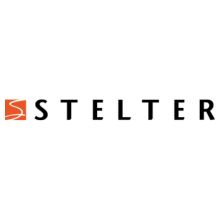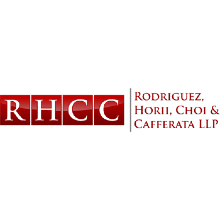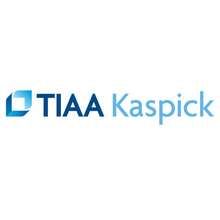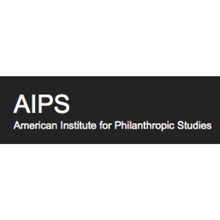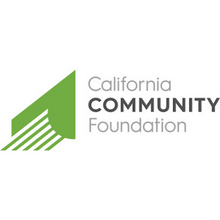- Home
- About Us
- Membership
- Events
- Conference
- Sponsors
- Resource Center
|
Welcome to the LACGP Newsletter. This e-newsletter is sent out on a monthly basis. The newsletter provides links to this page. Please see below for the items that appeared in the November 2021 issue. By Chris Cole, Treasurer We are approaching the time of year when it is appropriate to pause and reflect on that for which we are thankful in our personal lives, in work, and certainly those who support with their time and resources the organizations we represent. As a new board member, and newest Treasurer, of LACGP I would be remiss if I didn’t take this opportunity to share with you my gratitude for the work of the previous board and especially the prior Treasurer, Debbie Bills. Due to the board’s steady leadership and keen oversight, we finished fiscal year 2021 ahead of budgeted income and below budgeted expenses. A marvelous feat in a year that saw many changes and challenges! LACGP is in a strong financial position to continue providing in our new fiscal year the high-quality content, resources, engagement that enables all of us to do such meaningful work. By Aaron Levinson We all know that in order to succeed in our jobs, we need to obtain and secure support from our bosses and upper management. Generally the big decisions and changes are made in that echelon. Of course usually gaining this support is easier said than done. People like having choices. It helps them feel like they have an impact in the decision-making process. When presenting to your boss, you are more likely to gain support when you offer various options instead of seeming like there is only one way of doing things. Make sure the options you present are all viable and ones that you will be happy with if selected. You don’t want to run the risk of having a choice made and it’s one you think is terrible and can’t succeed. Another important point is that you need to make sure whatever you want to achieve fits into the organization’s goals. Your boss has his or her own objectives, and their bosses do as well. Show how your goals help achieve the bottom line and you’re more likely to gain support. If you feel that you need more marketing for your planned giving program, for example, tie in how this will help you close more planned gifts, ultimately helping the organization in the short and long term. Money is obviously one of the most important factors to management. If you are pitching something to your boss, make sure you explain how your idea can be funded and how implementing your idea can pay off. I like to use the word “investing” instead of “spending” because it shows that you are thinking about the bottom line and being strategic, rather than just wasting valuable funds. Finally, another important strategy is to get all the relevant information up from before you present any new ideas. Ask around your organization for input and gain support from your colleagues so that you can point to the data you have at hand. You can even survey colleagues at other organizations. Then you can tell your boss that “best practices” throughout the community are in line with what your idea will achieve. You won’t always get your way when you pitch a new idea, but hopefully using these guidelines will help you get to “yes” more often than not. Challenges When Collecting IRA Beneficiary Proceeds By Kimberly Jetton, MNM, CFRE If you’re like me, you get a bit excited when an envelope comes in the mail from a trust carrier or bank. Next to a physical check, the best news inside such an envelope is to receive a notice of an IRA or trust distribution. When these types of gifts are realized, they come with both excitement and trepidation. While I am exuberant of the fact that one of our incredible donors has decided to leave our foundation with an estate gift, the gift is not always easy to collect. What seems to be an easy distribution can turn into an effort of both patience and diligence on the part of the charity. Why? Because the policies found among some of the custodial organizations require folks like me to open a personal account where I must provide my social security number, as well as other personal information, to receive any charitable distribution. Like you, we are a 501c3 nonprofit organization with a Tax ID Number, yet we are being treated like individual heirs inheriting an IRA. Unfortunately, many decide that it is not worth the fight and begrudgingly supply their personal tax information to the custodian. Even when I contacted my estate attorney, I was told that sometimes we just have to supply it to get the distribution. Many of my colleagues, unaware of their options, end up providing private information to receive the distributions for their charities. But that doesn’t seem right. Should professionals have to compromise such information for the sake of helping their nonprofit institutions? Unfortunately, many acquiesce. Too many nonprofits are in critical need of these distributions, so their leaders give in to the demands of these IRA custodians. When I recently received notification of one such IRA distribution, I decided I would see how to challenge the request for my personal information on the form. I replied to the banking representative that I would not be supplying my personal social security number, thus opening a new account, for transfer of these funds. The funds were designated to my organization, the Orange Catholic Foundation. We have a tax identification number I could provide, so I asked if I could use that. I was refused. I then asked the representative if other nonprofits had provided their Executive Director’s personal information, and he told me that some of them had. Not one to give up easily, I provided them a copy of the Charles Schultz letter and asked that the representative send it to the bank’s legal office for review (Charles Schultz Letters A & B, Page 11, 12). Then I waited. Surprisingly, I received communication back that said my request was under review. I then heard their leadership team was approving an exception for a new account and was preparing a new form for me to complete. As I write this I am still awaiting final approval, but I am confident that this new policy will help my fellow planned giving professionals. I hope in sharing this experience, others will begin to push back as I have. There is no legal need for any of us to provide our personal information, though certain IRA Custodians will try to mandate it. I encourage everyone to stand your ground and help make these positive changes for all of us. |


